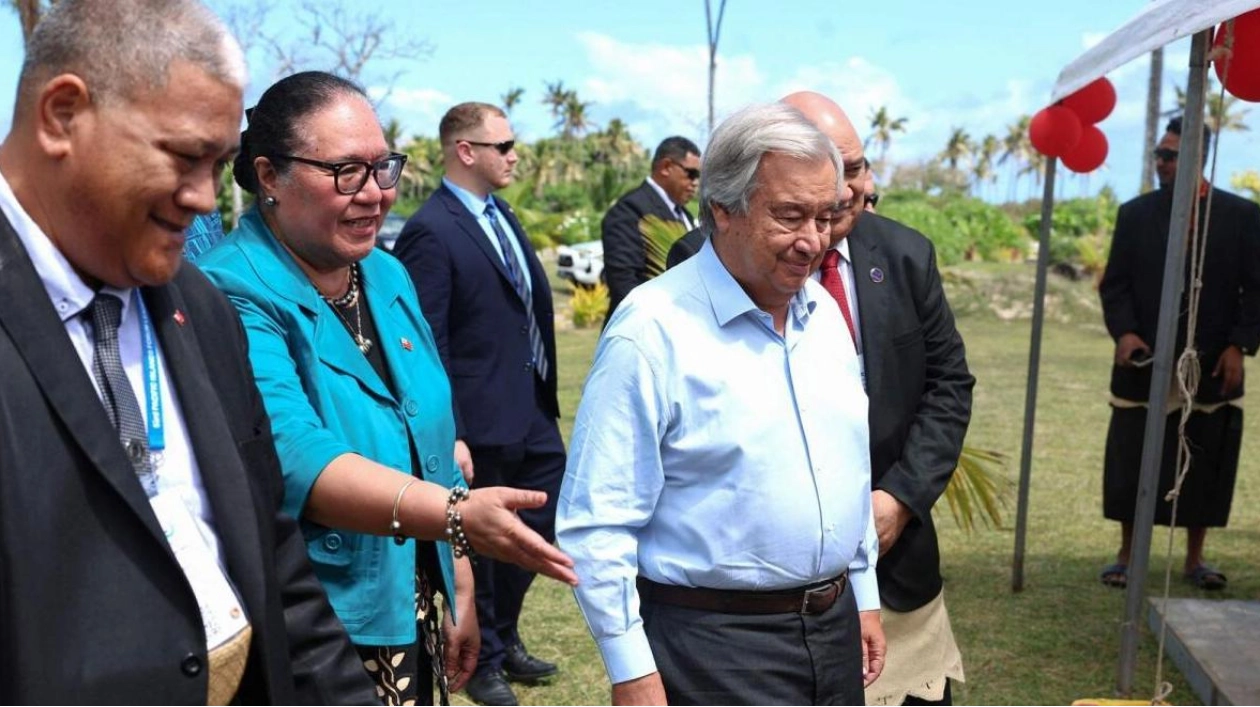United Nations Secretary-General Antonio Guterres stated on Tuesday that ocean temperatures in the Pacific Islands are increasing at a rate three times the global average, leaving the population 'uniquely exposed' to rising sea levels. Speaking in Tonga during the Pacific Islands Forum, Guterres emphasized a report's findings that the South West Pacific has experienced the most severe sea level rises, with some areas seeing more than double the global average over the past three decades.
'I am here in Tonga to issue a global SOS – Save Our Seas – regarding rising sea levels,' he declared. 'Rising seas are intensifying the frequency and severity of storm surges and coastal flooding. These floods inundate coastal communities, devastate fisheries, harm crops, and contaminate fresh water, placing Pacific Island nations in significant peril,' he explained. Guterres noted that water expands as it warms, contributing to sea level rise.
Climate change and security are central topics at the annual leaders' meeting, where the 18 members of the Pacific Islands Forum include atoll nations threatened by sea level rise like host Tonga, and major coal exporter Australia. Responding to a reporter's question about Australia's fossil fuel exports, Guterres asserted that fossil fuels must be globally phased out, though 'the situation varies by country' and different approaches will be necessary. The World Meteorological Organisation's report released on Tuesday indicated that ocean temperatures in the South West Pacific are rising at up to three times the global rate.
'Pacific islands are uniquely exposed. This region has an average elevation of just one to two meters above sea level,' Guterres pointed out. 'Half the infrastructure is within 500 meters of the sea,' he added. Without reductions in global emissions, the Pacific Islands face an additional sea level rise of 15cm by 2050 and 30 days per year of coastal flooding, he warned. He urged global leaders to 'significantly increase climate adaptation investments' in vulnerable countries.
A 'loss and damage' fund to assist poor nations in dealing with costly climate disasters was approved at last year's UN climate summit, following years of advocacy by groups including the Pacific Islands. However, the challenge remains to secure substantial contributions to the fund from wealthier nations. 'Developed countries must fulfill their financial commitments – including doubling adaptation finance to at least $40 billion annually by 2025,' Guterres insisted.






